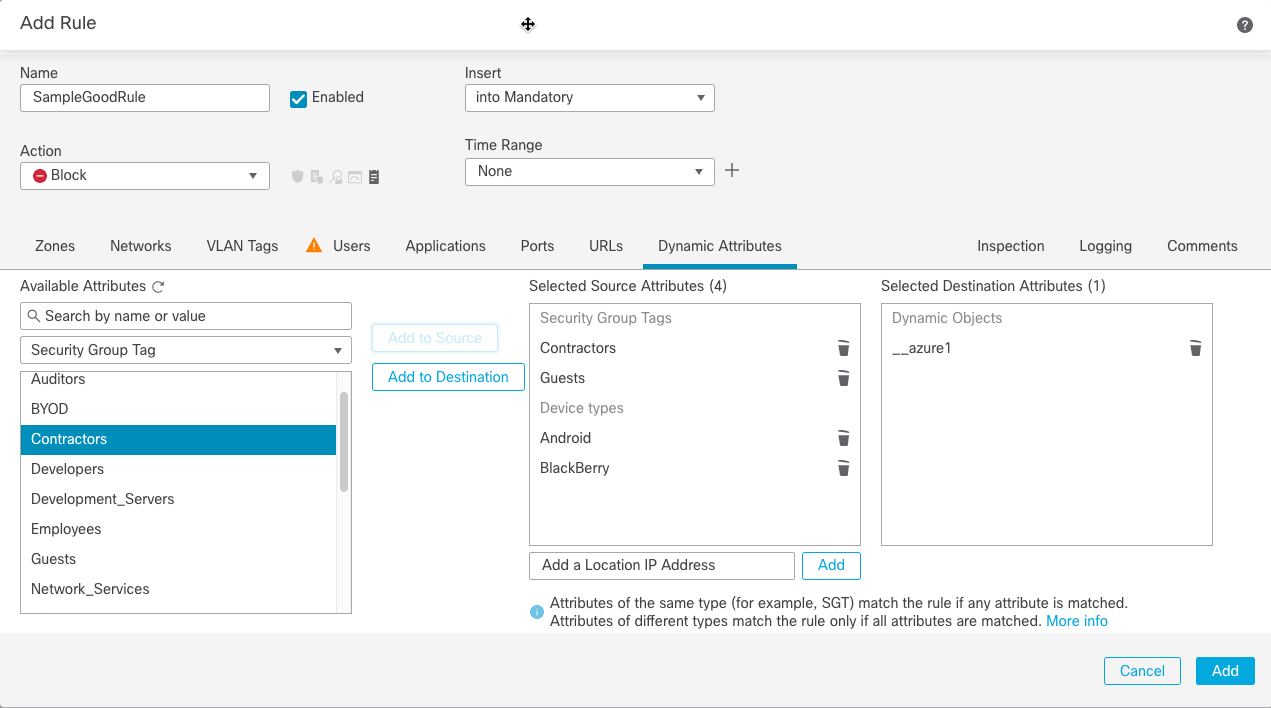Configure Dynamic Attributes Conditions
When you configure dynamic attributes for an access control rule, objects of the same type are ORed together and objects of different types are ANDed together. An example is shown at the end of this topic.
Before you begin
Create some dynamic objects and understand how those objects are used in access control policy.
For more information about dynamic objects, see About API-Created Dynamic Objects.
For more information about how dynamic objects are used in access control policy, see Dynamic Attributes Rule Conditions.
Procedure
Step 1 | In the rule editor, click Dynamic Attributes. |
Step 2 | Do any of the following in the Available Attributes section:
|
Step 3 | To apply the objects you selected, click Add ( |
Step 4 | When you're finished configuring the rule, click Save. |
Example: Using multiple source conditions in a block rule
The following example blocks traffic from Security Group Tags Contractors or Guests; and device types Android or Blackberry from accessing the dynamic object __azure1 .

What to do next
-
Deploy configuration changes.
